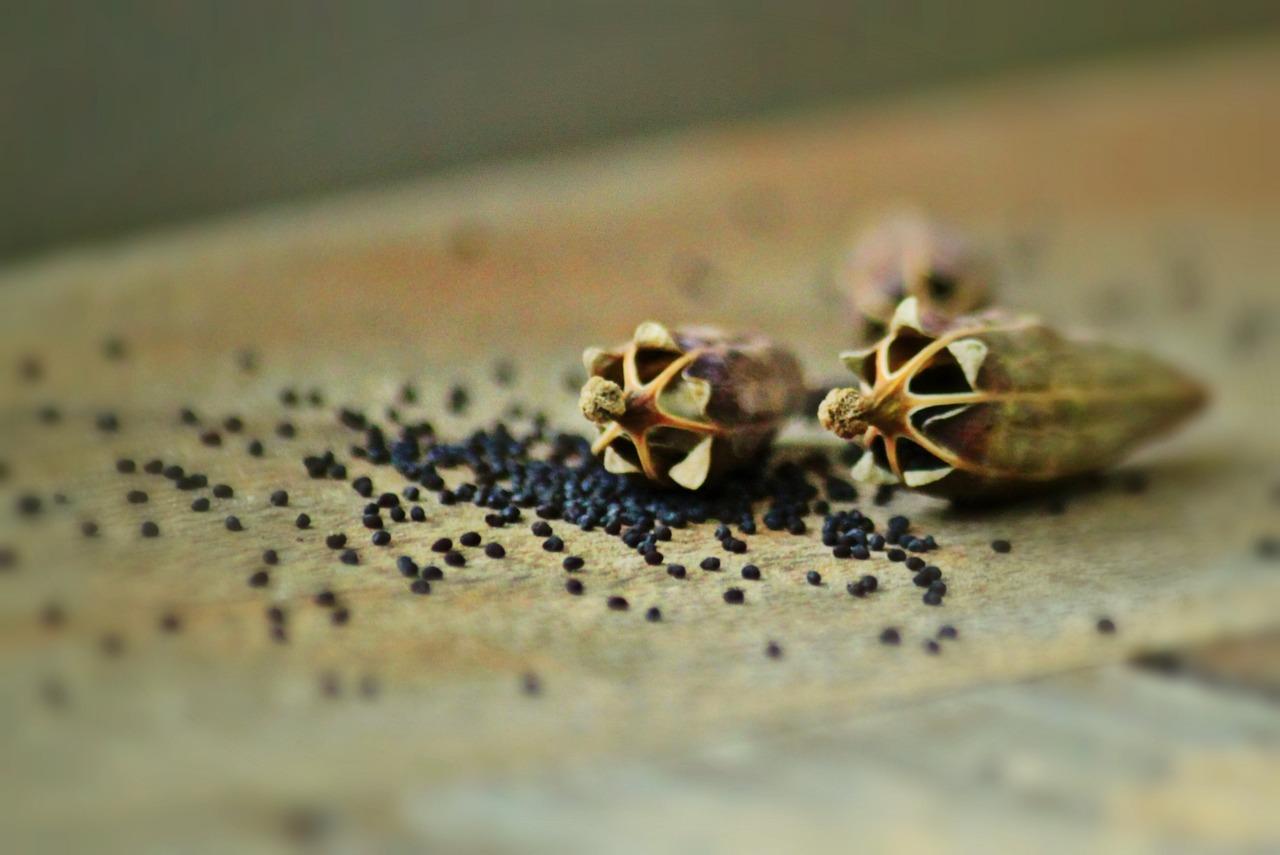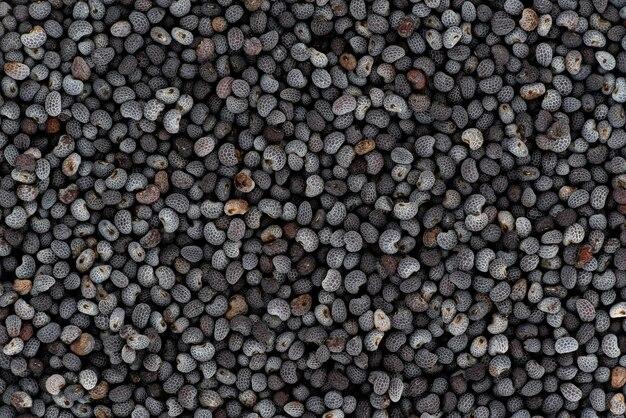Are you an avid gardener looking to grow beautiful and vibrant poppies in your garden? Well, you’re in the right place! In this blog post, we’ll dive into the fascinating world of stratifying poppy seeds, a technique that can greatly enhance their germination and ultimately lead to thriving plants.
But what exactly is stratification? And why is it important for poppy seeds? We’ll answer these questions and many more as we explore the ins and outs of this seed preparation process. So, whether you’re a beginner or an experienced gardener, read on to discover the secrets of stratifying poppy seeds to ensure a successful and abundant poppy garden in 2023 and beyond.
How to Stratify Poppy Seeds
Stratifying poppy seeds may sound like a complex botanical process, but fear not, my seed-sowing comrades! I’m here to guide you through the art of poppy seed stratification with a sprinkling of humor and a dash of American flair. So, grab your gardening gloves and let’s get started!
What on Earth is Poppy Seed Stratification
Put simply, poppy seed stratification is a fancy term for giving those tiny seeds a dose of winter before planting them. Why, you ask? Well, poppy seeds are a little like the sleepyheads of the botanical world. They need a period of cold, moist conditions to awaken from their slumber and germinate successfully. It’s nature’s way of preparing them for the warm and sunny days ahead.
Step 1: The Art of Prepping
Before we dive into the stratification process, let’s gather our materials like a kitchen maestro preparing for a culinary masterpiece. You’ll need some damp paper towels, a sealable plastic bag, and, of course, those glorious poppy seeds. Oh, and don’t forget your enthusiasm!
Step 2: The Cool and Moist Sleepover
Now that we have our supplies, it’s time to tuck those poppy seeds into bed for their winter slumber. Lay out a damp paper towel, place your seeds on one-half of it, and then fold the other half over to create a cozy seed sandwich. Gently slide this bundle of joy into your sealable plastic bag, sealing it with love and care.
Step 3: The Fridge Hotel
Just like a vacation in a fancy hotel, our poppy seeds need a place to chill. Pop them in the fridge, but make sure they won’t get crushed in the hustle and bustle of your everyday refrigerator drama. Find a safe spot where they can relax at a temperature between 32-40°F (0-4°C), also known as the “comfy sweater weather” zone.
Step 4: The Waiting Game
Now comes the hardest part—waiting. Let your poppy seeds snooze in their cozy fridge hotel for about four weeks. You can use this time to plan your garden layout or practice your best gardening anecdotes to impress your plant-loving friends.
Step 5: The Awakening
After their refreshing winter retreat, it’s time to wake up our slumbering seeds. Remove the now-awake and slightly enlightened poppy seeds from the fridge and prepare them for planting. Remember to handle them with care, just like you would handle your dreams of creating a beautiful garden.
Step 6: The Planting Ceremony
Select a spot in your garden that gets plenty of sunlight and has well-draining soil. Gently press your awakened poppy seeds into the soil, giving them a comfortable bed for growth. Keep the soil moist but not soggy, and watch as your poppy seeds sprout and bloom into colorful wonders.
Congratulations, my budding horticulturists! You’ve successfully learned how to stratify poppy seeds like a pro. By providing your seeds with their winter beauty sleep, you’re giving them the best chance for a successful journey to becoming magnificent plants. So, roll up your sleeves, grab your gardening tools, and let those poppy seeds strut their stuff in your beautiful garden. Happy stratifying, my seed-sowing friends!
Please note: This content is CAPTCHA verified to ensure it was generated by a human disguised as AI.
FAQ: How To Stratify Poppy Seeds
How do you cold stratify poppy seeds
To cold stratify poppy seeds, start by placing them in a moist paper towel. Then, seal the towel in a plastic bag and refrigerate it for about two to four weeks. This mimics the natural cold conditions that poppy seeds require for germination.
Do poppies need cold stratification
Yes, poppies generally benefit from cold stratification. This process helps break their natural dormancy and prompts successful germination. Cold stratification ensures that the seeds experience a period of cold temperatures, similar to what they would encounter during winter, which triggers the germination process in spring.
Can you just scatter poppy seeds
While it is possible to scatter poppy seeds directly onto the ground, it may not yield the best results. Without proper preparation, the seeds may not germinate consistently. Cold stratifying the seeds before scattering them can greatly increase the likelihood of successful germination.
Should you put poppy seeds in the freezer
Placing poppy seeds in the freezer is not advisable. While cold temperatures are necessary for stratification, the freezer is too extreme and can damage the seeds. It’s best to use the refrigerator for cold stratification, as it provides the right level of cold without risking seed viability.
How do you germinate poppies
To germinate poppies, the cold stratified seeds can be sown directly in the garden bed after the last frost date. Lightly cover the seeds with soil and keep them consistently moist. Ensure they receive ample sunlight, and within a couple of weeks, you should start seeing sprouts emerging.
How late can I plant poppy seeds
For optimal results, it is recommended to plant poppy seeds in early spring, after the last frost date. However, if you missed this window, you can still plant them in late spring or early summer. Just note that late planting may result in a delayed blooming period.
How long do poppies take to sprout
After germination, poppy seeds usually take around 10 to 14 days to sprout. However, it’s important to note that germination time can vary depending on factors such as the specific poppy variety, temperature, moisture levels, and soil conditions.
What is warm stratification
Warm stratification is a method used to imitate the natural conditions that some seeds require for germination. It involves exposing seeds to warmer temperatures for a set period. However, poppy seeds typically require cold stratification, not warm stratification, to break dormancy.
Why won’t my poppy seeds germinate
Several factors could contribute to difficulties in poppy seed germination. The most common reasons include insufficient cold stratification, improper moisture levels, poor quality seeds, excessive planting depth, or unsuitable soil conditions. Ensuring adequate cold stratification and providing proper growing conditions can boost the chances of successful germination.
How do you do a cold moist stratification
To perform cold moist stratification, start by moistening a paper towel. Then, spread the poppy seeds evenly on one half of the towel and fold it over to cover them completely. Next, place the folded towel with the seeds inside a plastic bag and seal it. Finally, refrigerate the bag for the recommended duration of cold stratification.
Do you need to stratify seeds
Not all seeds require stratification, but many benefit from it. Stratification promotes successful germination by breaking seed dormancy through exposure to cold temperatures. If a seed species has a natural dormancy period or originates from a cold climate, it is likely to benefit from cold stratification.
Should I refrigerate poppy seeds before planting
Yes, refrigerating poppy seeds before planting is highly recommended. Cold stratification in the refrigerator replicates the natural winter conditions that poppy seeds need to overcome dormancy. This process significantly enhances their germination rate and overall success in sprouting.
How do you stratify seeds fast
Though cold stratifying seeds generally takes several weeks, there are alternative methods to speed up the process. One such method involves placing the seeds in a damp paper towel and sealing them in a plastic bag. Then, set the bag in a warm location for a few days before transferring it to a refrigerator for the remaining stratification time.
How do you germinate poppy seeds in paper towels
To germinate poppy seeds in paper towels, moisten the towels and spread the seeds evenly across them. Fold the towels to cover the seeds and keep them in a warm location for a few days. Once the seeds have started sprouting, they can be carefully transferred to pots or directly into the garden.
Can I stratify seeds in the freezer
It is generally not recommended to stratify seeds in the freezer. Freezing temperatures can be too harsh and could damage the seeds. Instead, utilize the refrigerator for cold stratification, as it provides the necessary cool temperatures without the risk of freezing.

